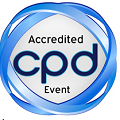Meet Inspiring Speakers and Experts at our 3000+ Global Conference Series Events with over 1000+ Conferences, 1000+ Symposiums
and 1000+ Workshops on Medical, Pharma, Engineering, Science, Technology and Business.Explore and learn more about Conference Series : World's leading Event Organizer

